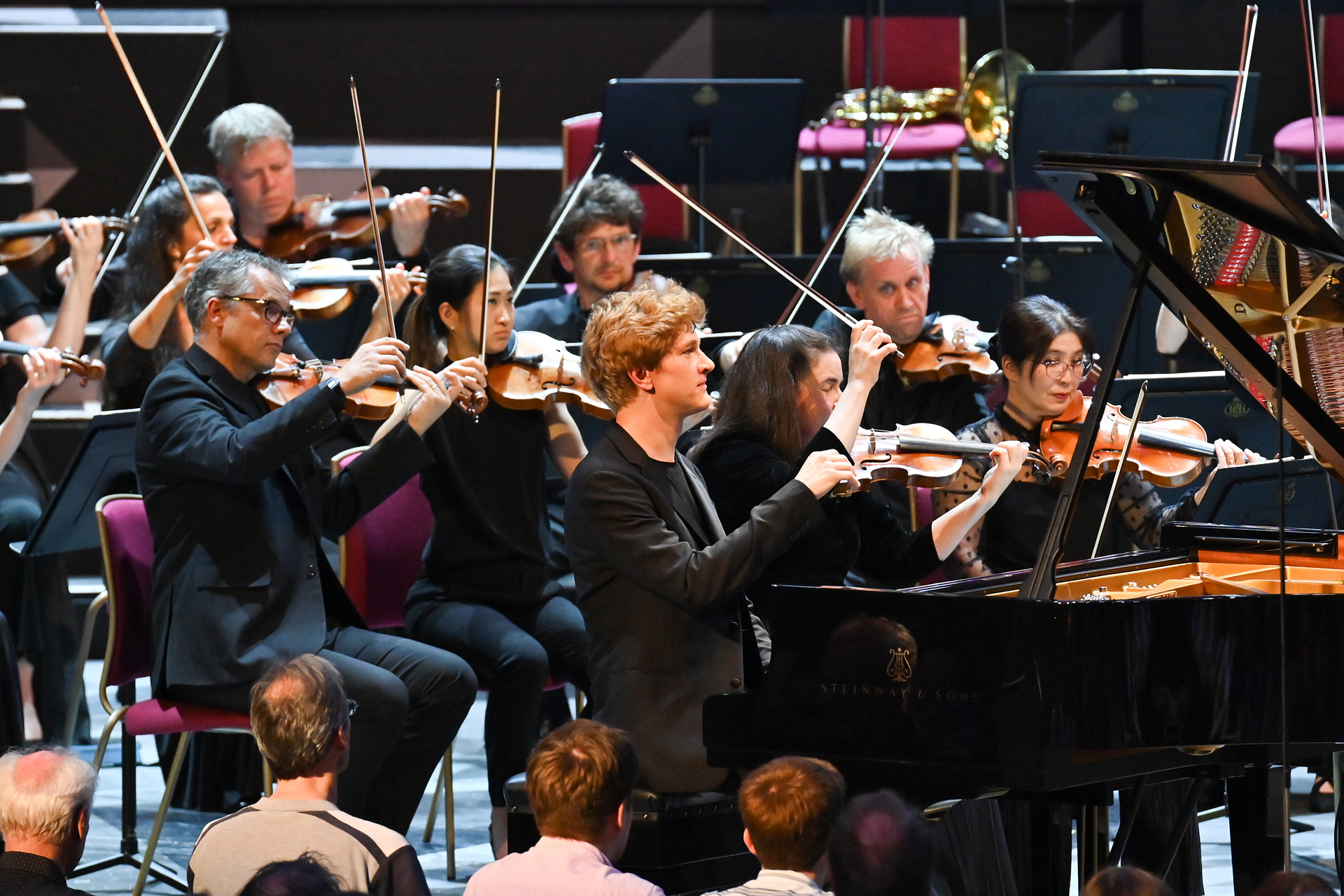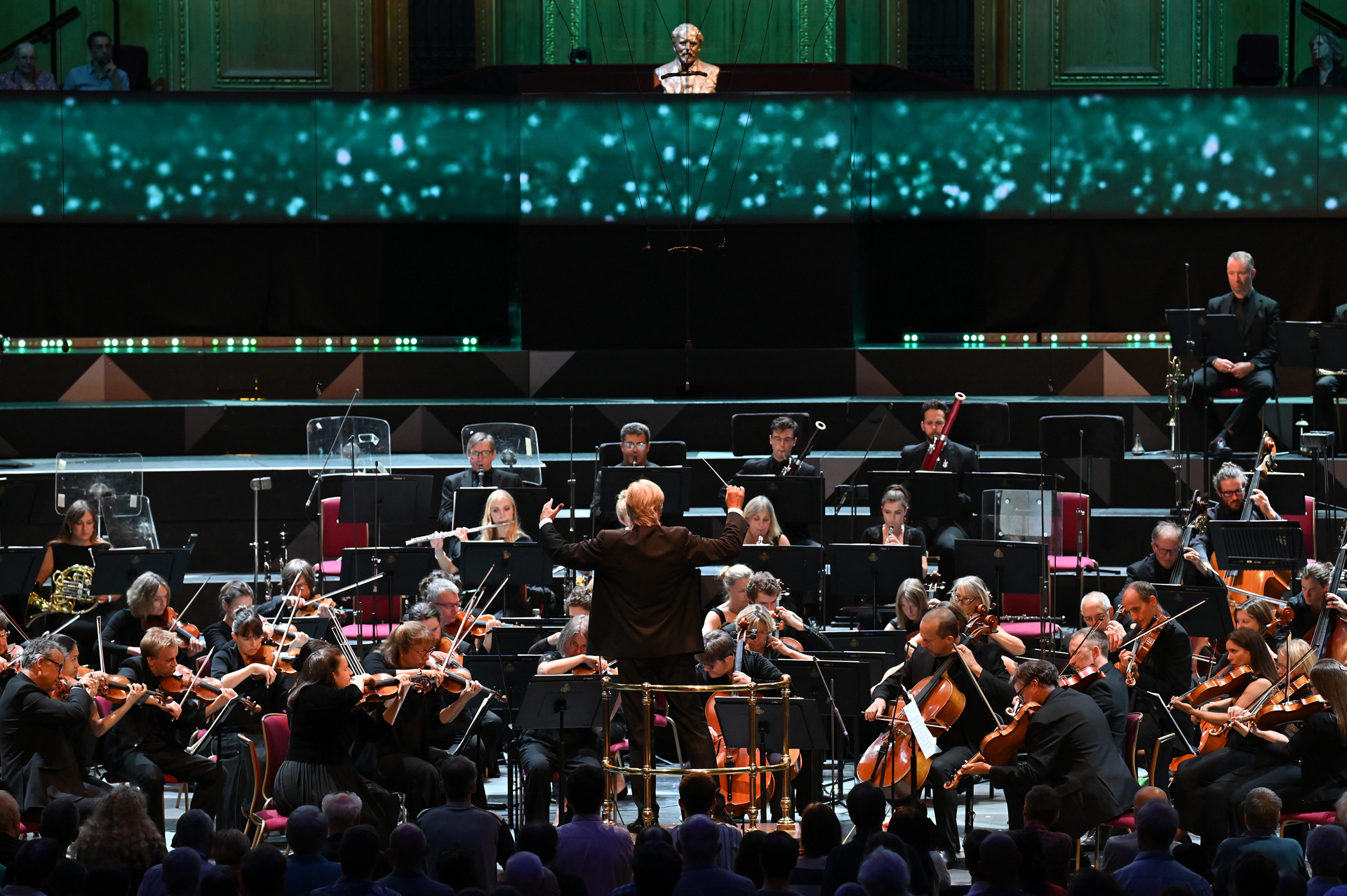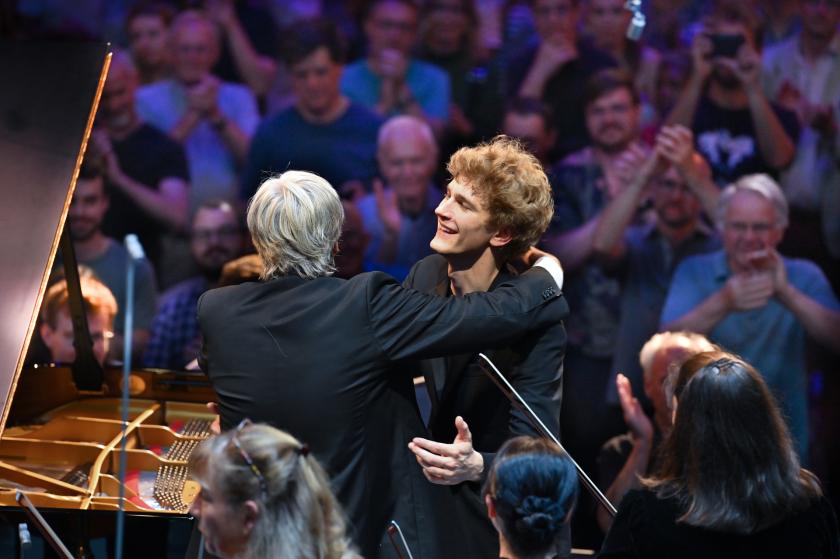Sibelius or Nielsen symphonies? Last night, with the Finn’s Seventh in the first half and the Dane’s “Inextinguishable” (No. 4) in the second, choice should have been impossible. Francesco Piemontesi or Jan Lisiecki? I’d have been equally happy with either pianist, but there we had no option: PIemontesi was unwell and the Canadian took over. The Beethoven Fourth Piano Concerto we heard as a result was fresh and electifying.
Strong concerto partnerships are rare: some conductors are very good on their side of things, like Andrew Davis and Osmo Vänskä, But to see Thomas Dausgaard watching his pianist so keenly, and Lisiecki responding so vividly to players as well as conductor was quite a thing. And you heard it in the results. While the BBC Scottish Symphony Orchestra seem to have been encouraged to take the nimbler, more 18th-century-nimble line in a Janus-headed masterpiece, Lisiecki was encylopedic in his vocabulary, able to fire clearly at full pelt only to fly away into a run of phenomenal dexterity – and poetry, too.
Parts of the finale seemed to anticipate Mendelssohn’s fairy music in the Midsummer Night’s Dream Overture by two decades. One of the two familiar cadenzas in the Allegro moderato had the freedom of improvisation; Orpheus Lisiecki's response to well-sprung furies in the orchestra of the most original concerto middle movement was as ineffable and other worldly as they come, at least until the one explosion which also fades to near-inaudibility.  Who’d have thought that less than a week after the Liszt reinvented of Yuja Wang we’d be hearing equal daring – also within the bounds of perfect musicality – in another work that can get stale in its familiarity? While Wang went for as many notes as possible in her two encores – though the Gluck/Tausig Blessed Spirits were also ineffable – Lisiecki had very few with which to cast a spell in Chopin's Op, posth. C minor Nocturne - currently you won't find this on the iPlayer, where the concert is cut in two and the first part ends before the concerto does, the second picking up in the interval - but the sense of an entire, quite well-filled Albert Hall holding its breath was palpable.
Who’d have thought that less than a week after the Liszt reinvented of Yuja Wang we’d be hearing equal daring – also within the bounds of perfect musicality – in another work that can get stale in its familiarity? While Wang went for as many notes as possible in her two encores – though the Gluck/Tausig Blessed Spirits were also ineffable – Lisiecki had very few with which to cast a spell in Chopin's Op, posth. C minor Nocturne - currently you won't find this on the iPlayer, where the concert is cut in two and the first part ends before the concerto does, the second picking up in the interval - but the sense of an entire, quite well-filled Albert Hall holding its breath was palpable.
Atmospheric near-silences impressed in both symphonic performances. The Sibelius was welcome after more thickly upholstered accounts; Dausgaard’s very clear view allowed for miraculously shifting cloudscapes with lights within them that I hadn’t heard before in the slow introduction. Simon Johnson’s resplendent trombone solo scythed through the textures in the work’s three main pillars of optimism, and the BBCSSO woodwind had an uncanny knack of full-blooded projection, at least from where I was sitting; Amy Yule’s flute and Stella McCracken’s oboe shone forth at all times.
Their role in Nielsen’s Fourth was even more prominent, thanks to his very selective and idiosyncratic scoring (the deceptively simple-sounding intermezzo is for wind band at first, punctuated by the most delicate and playful of pizzicato strings). Dausgaard hurled us in before we were even settled; as in the Sibelius, negotiations of tempo-change in the volcanic opening Allegro were masterly. I’m much less sure about the progressive slowing as dynamics dwindle in the slow movement, a very exaggerated view of what Nielsen instructs (orchestra and conductor pictured below; none of Chris Christodoulou's usual shots of this especially animated conductor face-on because Dausgaard was wearing a mask). The fundamental problem, though, is that the BBCSSO strings just aren’t the meaty variety: maybe you need a top ensemble like the Oslo Philharmonic or even the CBSO as Rattle used to conduct them in the big explosions. Incisive, yes, and always well moulded, but titanic, no.
The fundamental problem, though, is that the BBCSSO strings just aren’t the meaty variety: maybe you need a top ensemble like the Oslo Philharmonic or even the CBSO as Rattle used to conduct them in the big explosions. Incisive, yes, and always well moulded, but titanic, no.
Biggest disappointment came in what promised to be a mighty battle of two sets of timpani for the final conflict. One set was placed at the right sight of the arena facing the orchestra. Earplugs were offered, but I doubt if even the Prommers needed them. You knew these were going to be played, so why the gimmick of a rucksacked, casually dressed young man moving through the standees and revealing himself with his sticks? This was Alasdair Kelly, and I wasn’t sure I was getting the full welly of his thunder from the other side of the hall. But Gordon Rigby on the platform I could hear, and it was nothing like the gunshots we expect. Impressive overall, but ultimately disappointing.














Add comment